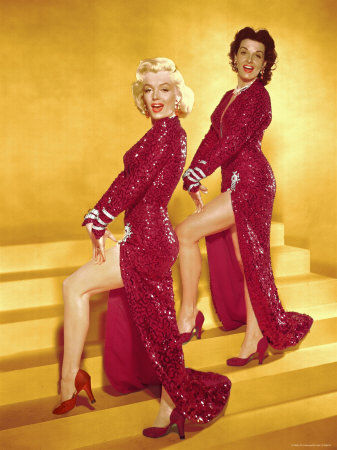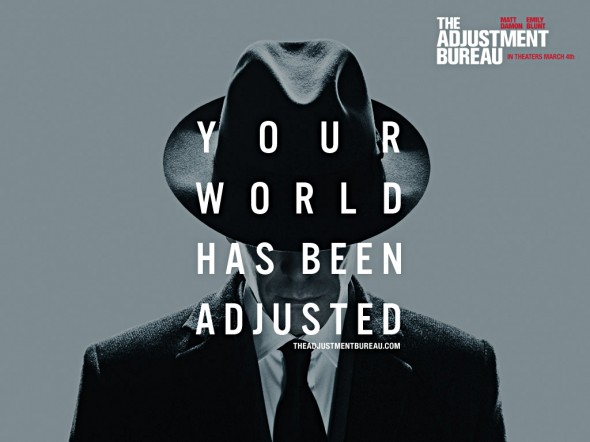Interview: Dani Johnson of ‘The Secret Millionaire’
Posted on March 3, 2011 at 8:00 am
The new ABC reality series “The Secret Millionaire” places wealthy people in poor communities to give them an opportunity to find the heroes who are working to make the world a kinder, more generous, more connected place. The participants are not clueless spendthrifts. These are dedicated, hard-working people who already make significant contributions, financial and otherwise. This is a chance for them to find new people and places that merit their support.
I spoke with Dani Johnson, who is featured in the show’s first episode. Dani’s site says she was “Raised on welfare, pregnant at 17, homeless at 21, and a millionaire at 23 – now multi-millionaire entrepreneur, best selling author, internationally sought after speaker, and radio talk show host.” Her energy and compassionate spirit kept me smiling all day.
How did you come to this project?
I had gotten a phone call from ABC and our initial answer was no. Four times I said, “Thanks but no thanks; this is not for us.”
Why did you change your mind?
That’s a shocker, isn’t it? God made it completely obvious that it was Him that opened this door and it wasn’t by the hand of man. Growing up on welfare, being exposed to things no child should see, violence, drugs, with emotional, sexual, verbal, and physical abuse, only to end up homeless at age 21 with $35,000 in debt and with only $2.03 to my name, going out and becoming a millionaire by the time I was 23, we have used our business as a model that is two-fold.
One, I have a personal passion for helping people to increase their income, pay off their debts, and live the life they want and to use their influence and money to better the lives of those around them. And two, we’ve done it in secret. The recipients of the millions of dollars my husband and I have given away for two decades in secret. They don’t know it was us. I would much rather the people thank the One who really answered their need, and that One is not a human.
So that was a giant hurdle for us to get over, that they would know it was us who gave the money. But God made it very obvious that this was exactly what were were supposed to do because it is about the heart of the issue, do you do it for recognition or to help. Getting recognition has never been our deal.
What was the first day like for you?
It was challenging because I was away from my family. I was put in a neighborhood that was all too familiar from my childhood. The conditions were back in what I grew up in. We go into those places but not to live there. It was doable but it was scary, just because of the childhood stuff and being totally away from my husband and kids and our friends. And they told me nothing. I was really being led blindly. I really had to increase my faith, walk in my faith, and trust that I would be safe. That was the harder part.
What did you learn from the people that you met?
The Love Kitchen — the two women I so identified with, they touched my heart because of the level of faith they had for 25 years to come up with money to feed the homeless, 2000 people a week. What level of faith — that is so massive to trust God for that level of money, it really challenged my faith as a business woman.
It took faith for me to stop taking drugs, stop sleeping around, to get out of the pit I was living in, to start my business and become a millionaire, to start five companies, to write books when I had no idea if anyone would buy them. All of that took faith. But this is different! It’s not a calculated risk. Holy moly, I felt like a two year old in my walk of faith compared to them.
The Joy of Music reached inside my heart and it was totally unexpected. I was a total mess on my visit. A year ago I wrote a book called Grooming the Next Generation for Success. I wrote it because I have a passion — 14,000 hours of schooling kids have through high school and not one class on finance or what it takes to succeed. We have a generation that feels entitled because they don’t know better. Parents don’t know how to groom their kids to succeed. Kids are lacking social skills, emotional skills, financial skills.
So when I walked into The Joy of Music — they’re grabbing kids like where I grew up. Kids who have been around drugs. Kids from unsafe environments. And they offer them a place to come to, a beautiful corporate building, where they can learn music — voice, cello, drums, guitar, you name it! All the lessons are free as long as they keep up their grades. They have to come in with their shirt tucked in and their collars straight, all clean. They have to do their part, show up, practice, keep logs of their practice. I spent the day with kids like the ones where I grew up, learning music and how to respect, how to honor, how to reach for that talent inside yourself. And that day, two kids who had spent years there were graduating from high school with full scholarships to universities. Those kids have been groomed for success. They will not come back to what they left.
What do most people misunderstand about the poor?
I daily bawled my eyes out. The poor know Him. The boys who got the scholarships are Christian boys. The families that brought their kids there, they love God. People think the poor are stupid, that they have no morals, that they made bad decisions. I can line up thousands from middle class America that are far worse morally and in their sense of community that what I witnessed at that neighborhood in Knoxville, Tennessee.
I came in contact with the most amazing, amazing, amazing people, not just the people who run the charities, the people who are being helped. They help each other and stick together. Middle class America is texting, talking on the phone, on Facebook, watching television, busy with their iPads, totally isolated. The poor communities have each other. I came across two amazing mothers, loving and dedicated to their families, just sitting under a tree and talking to each other. In other places, the social interaction is happening digitally, on Facebook instead of community with people.
What did you tell your children about the experience?
I came home very raw, very emotional. I realized how much I value personal time, by myself and with my family. Not a lot of millionaires realize that. They work all the time. I work 20 hours a week and my life is devoted to my husband and my kids and my God first.
My kids have been surrounded by what I experienced in Knoxville. My daughter at age 12 lived with the homeless in a bus. I brought my kids down to a poor community, washing the feet of the homeless, trimming their fingernails, cutting their hair. As a family with 31 of our clients, we served a group of orphans. My children have friends among the children in the orphan programs. So it wasn’t a shock when I told them what I had seen. They said, “Oh yeah, that’s just like so-and-so.” They know what it is like. It wasn’t anything shocking to them at all. But I can’t wait to take them to The Joy of Music!





